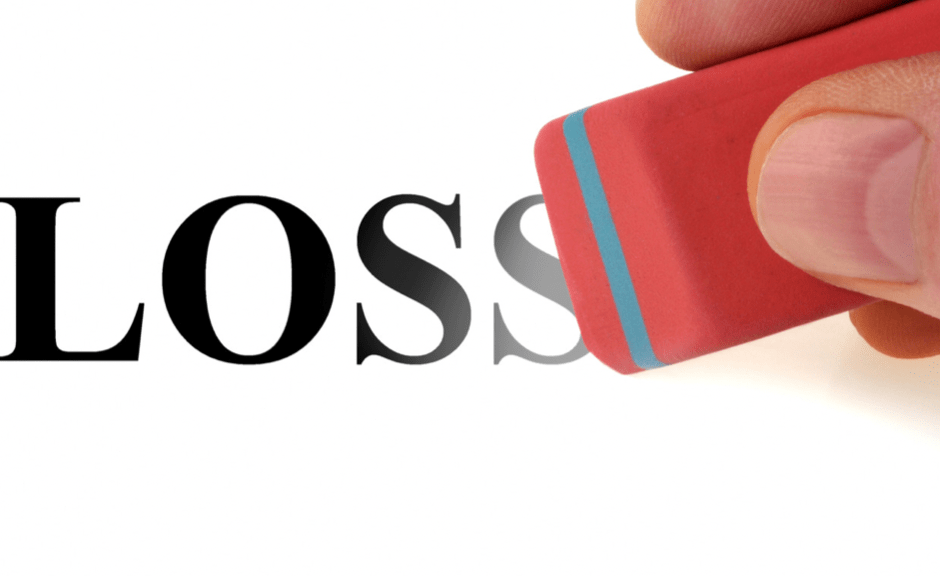
Coping with Ambiguous Loss in an Age of Fascism
I’ve been thinking a lot about ambiguous loss lately. And on the heels of a few recent blog posts here looking back at fascistic rhetoric and policies and their negative effects (see here, here, and here), I’ve been thinking about ambiguous loss in those contexts. Hang with me and I’ll try to unwrap what ambiguous loss means, how it can apply to life in an era where fascism is attempting to rise, and how we can all pour our stress energies into healing for us both individually and collectively.
Ultimately, I hope we can all keep working together to create a world in which there is less unnecessary ambiguous loss from things like fascistic policies, and more support for each other while we continue to work toward that world.
My Background and Standpoint
So yeah, as always, I’m coming at this topic as a pastor’s kid who grew up to become a communication scholar who studies stress, trauma, and conflict communication.
Out of that frame I understand intimately some forms of the more traditional understanding of ambiguous loss just from our frequent moves from church to church as a child.
Hang in there, and I’ll explain that example, and move from there to ambiguous loss from the recent rise in fascism.
Quick Note Before I Get Too Far
Before I dive into this analysis of ambiguous loss in an age of fascism, a quick reminder. In case you haven’t read Jason Stanley’s excellent book How Fascism Works or my previous pieces drawing from it, Stanley makes the excellent point that the US, where I live, hasn’t somehow been immune from fascism all of these years since its founding, only to suddenly develop it now.
In fact, Stanley notes that the US has always lived in a tension between fascistic and democratic forces. He points out, for instance, that the “America first” movement started in the 1930s in support of Hitler, and that Hitler was inspired by America’s Jim Crow policies.
I think, as we move into the analysis, you’ll see that at least some of the ambiguous loss some of us are feeling is the fact that we’ve been duped into believing our nation has somehow been “pure” until recent years. I believe that like other ambiguous losses, we all need to work those feels out properly and healthily in order to move forward.
Defining Ambiguous Loss
So yeah, traditionally, the term ambiguous loss, coined by Pauline Boss more than 40 years ago, referred to losing individual people in a way that made it hard to gain closure.
Ambiguous Loss Type 1: Person Is Absent without Proper Closure
This could refer to a person’s absence from your life. The initial case for this was soldiers missing in action.
Ambiguous Loss Type 2: Person Stays But Changes Drastically
It could also refer to a person missing in action more in spirit than in body. Say, because of drastic personality change, as in someone suffering from dementia.
More Recent Developments: Even More Abstract Ambiguous Losses
More recently, scholars have been developing this concept to mean not just missing individual humans, but even more, well, ambiguous things.
For instance, people have been studying the ways in which climate change and racial injustice and changes associated with the pandemic lead to all kinds of ambiguous losses.
A Personal Example of Ambiguous Loss
It feels to me like my childhood moving as a PK, in an era before social media when long distance phone calls were expensive, led to an awful lot of ambiguous loss of people in the first sense.
Sure, we always had goodbye events, but I lost an awful lot of childhood friends and acquaintances along the way. In some ways, sure, there was some sense of closure. But in others, well, I always hated losing my broader community every few years and having to learn my way into a new one.
What If…?
If I had stayed in the same place over time, my psyche said, those people could well have developed into a source of stable community support for me than I ultimately had.
I processed these losses as ambiguous, I think, because I can’t have known what those relationships might have looked like had they continued. Nor could I know how my childhood would have looked like without those moves. Not really.
See, ambiguous loss, in my view, is about those persistent what ifs.
I should also note that another dimension of these moves that makes the loss ambiguous is that we don’t often recognize that the loss of less close relationships can cause grief. When someone meaningful to you dies, there’s an acknowledged social container for that. We have fewer social containers for some of these other types of ambiguous loss.
Back to Ambiguous Loss Type 2
I do know this: not all of those connections, even had I been able to keep them intact, would have been happily ever after ones, even as acquaintanceships. See, social media now exists. And I’ve been able to keep in touch enough with people from my youth now to guess that some of those people might have continued to feel trustworthy to me. And some would not.
And considering that even my adult self didn’t fully know how people in my life would break down into those I would continue to trust and those I would not when the US election of 2016 became such a dividing line, I can’t imagine that my imagined mythical vision of a stable trustworthy community in my youth would have completely panned out in the way I would have hoped it would.
Apocalypses Are Sometimes at Least Good for Clarity, I Guess?
So yeah, let’s talk about how the last few years of politics has brought so many of the second type of traditional ambiguous loss to the table for so many of us.
Because this is a thing a LOT of us are grieving in the last few years of increasing fascism in the US—the ways in which people we previously thought of as good and loving and empathetic and relatively reasonable people are, well, no longer in that category.
I talked about my grief over some of these kinds of things here and here, among other places.
And yeah, there’s a lot of that grief to go around in all sorts of ways in an era where fascism is on the rise.
Applying Ambiguous Loss Specifically to Fascistic Rhetoric and Policies
Perhaps what I’ve already said already has your mind whirling about kinds of ambiguous loss you’ve been facing lately—both those specifically related to fascism and others as well.
But ambiguous loss can be, well, ambiguous. Hard to get one’s arms around. So maybe there’s just something vague coming up for you.
Sigh. That’s the whole incredibly d*mned frustrating point.
So going into a few of the hallmarks of fascism Jason Stanley goes over in How Fascism Works should maybe help you get a grasp on some more specifically ambiguous losses.
After all, as psychologists point out, the first step to dealing with ambiguous loss and the grief associated with it is to be able to name it.
Fascism=Trying to Create and Peddle Unhealthy Unresolved Ambiguous Loss
Okay, so I’ve been moving in this direction in previous posts, but this just really hit me again in a huge way. The really striking thing to me about fascism and ambiguous loss is that fascistic rhetoric is actually BUILT ON CREATING A KIND OF ZERO SUM MYTHIC AMBIGUOUS LOSS that unambiguously harms others.
That is to say that by creating nostalgia for some sort of, say, “Christian Nation” that never was (see my blog piece on this here), bad actors tend to put people into a stressful grief-filled state.
Same goes for the whitewashing of history. The idealization of the years before Roe v. Wade and before same sex marriage was legalized. Before “traditional marriage” somehow “went downhill.” (Please read so much sarcasm into that last line.)
Creating an Unhealthy State of Denial + Scapegoating Anger
So yeah, fascism literally trafficks in the creation of ambiguous loss. Or at least taking existing ambiguous losses and trying to turn people in unhealthy directions using it.
Stanley outlines the mechanisms that fascistic rhetoric and policies use to do this:
By demonizing expertise and the fact-checking press, by scapegoating historically marginalized populations and their supporters, by mainstreaming unhealthy conspiracy theories, etc. etch etc. people are whipped up into the denial stage of grief regarding a lot of observable issues in the world and into the anger stage of grief as directed in unhealthy directions.
EVERYONE Ends Up with Ambiguous Loss in Fascistic Societies
Unfortunately, these unreality-based scapegoating mechanisms, among others, create a whole set of vague ambiguous loss situations for everyone.
Extra Ambiguous Losses for the Anti-Fascists and the Scapegoated Parties! Yay???
And these losses are particularly painful for those who don’t buy into the fascistic mythic vision as well as those who are directly scapegoated by it.
Unfortunately, to move on in healthy ways, we must all name, face, and deal with some of the feels that come with the fear for ourselves and our loved ones that come with the threats to our rights and lives that come with fascistic policies.
Not to mention our fears of being unheard and unsupported by a system based in unhealthy unreality, in which equality, equity, empathy and expertise are all seen as the enemy.
Ah, That Line from Frodo in Lord of the Rings Comes to the Rescue
Ultimately, it feels like we all must give ourselves space to feel the feels that Frodo voiced in the Lord of the Rings when he said that he wished that he had never lived to see such times.
Unfortunately, as Gandalf famously said in that instance, we don’t get to choose the times we live in. We can only choose the ways we respond to it.
So yeah, as the psychologists point out, naming and working through our senses of the ambiguous losses that come with the rise of fascism is super important.
Moving Forward through Our Ambiguous Griefs
So yeah, here are some tips for doing so in a heathy manner:
- Own that we’ll all be dealing with various ambiguous losses in this time.
- Help each other name and work through the variations we’re experiencing.
- Try to recognize our own and others’ stress responses (if you want help with that, there are tips toward that end in the free “Guide to Trolls” you can get here–see the instructions for that at the end of this piece).
- Refuse to turn our stress energy against others suffering from fascism; instead,
- Use the stress energy from our grief to band together to work toward a healthier world.
Speaking Up Can Help Both Identify Ambiguous Losses and Prevent More
Here’s the thing that’s maybe most important in all of this, friends: since fascism creates a world of unhealthy unreality that hurts people, standing up and speaking on behalf of reality- and empathy-based viewpoints is super important.
So FRUSTRATING That We Have to Do This Work
And yeah, let’s be clear: having to spend the time and energy to do things like work to save democracy through grassroots organizing, to support ourselves and others as we work through our ambiguous losses, etc. etc. etc. comes with its own kind of ambiguous losses to grieve out.
Because yeah, like Frodo, we all mourn our own types of mythic worlds that fascism is trying to destroy—and has destroyed in a lot of ways.
And we need to take a moment to name and work through that too.
Which is d*mned frustrating.
We Still Need to Do What We Can As We’re Able
But yeah. We may never be able to get our lives and world to look like they would if fascism hadn’t been on the rise in our era.
But we CAN and absolutely SHOULD be doing whatever we can to grieve through our ambiguous losses and using that stress energy to work toward better worlds moving forward.
Overcoming the Unhealthy Gaslighting of Fascism One Step at a Time
Because while it—to use the technical term—sucks rocks that we don’t have healthier systems now, it’s a fascistic lie that we are stuck in this mode forever and ever.
See, as I look at fascism through the lens of the ambiguous grief it seeks to unhealthily create, its goal is to hijack the denial and anger stages of grief toward unhealthy ends.
In doing so, it seeks to push people into an endless situation in which we see only those two stages of grief are possible. And only unhealthy versions of them.
Reminding Ourselves and Each Other That a Healthier World Is Possible
But that isn’t reality, friends. What is real is that dealing with ambiguous loss is challenging but in no way impossible.
We can help ourselves and each other to move through it by grounding ourselves in the reality, which is that grief is complicated, but entirely possible to work through.
Especially once it is acknowledged and named. And especially if we work to support one another through it.
I could go on, but hopefully this is enough for this week.
Note: Acceptance of Ambiguous Loss Means Fighting Fascistic Unreality
I know this much is true: moving toward the acceptance stage regarding the ambiguous griefs we all face DOES NOT MEAN accepting fascism and its goals.
On the contrary, acknowledging and working through our griefs surrounding fascism can ground us in the reality of its unhealthy effects. And lend us the strength and energy to work toward a healthier reality.
I also know this:
If we ignore our griefs, they are more likely to drive us in directions we don’t want. And that helps none of us.
It doesn’t mean we have to completely fix them and move on (lord knows I’m still working through mine!).
it just means we need to do the emotion work to avoid being unhealthily driven by them in ways that may hinder our progress toward helping ourselves and others the best we can.
What Are Your Ambiguous Losses in This Fascistic Age?
I’ll leave you with this question (feel free to answer in the comments, on your own, or in groups of trusted folks around you): What forms of ambiguous grief are you facing in your own journey through this disturbing era? What can you do to direct your stress energies to make a change?
A Final Charge
Go team #AssertiveSpirituality! Let’s all do what we can where we are with what we’ve got toward a healthier world for us all. We can do this thing.
Want to donate to keep this work going? I finally, after 4 years of this project, have tip jars set up at Venmo and PayPal so you can help keep the lights on and such (THANK YOU for whatever you can do!). Here’s the info:
Venmo: @assertivespirituality
PayPal: https://www.paypal.com/donate/?hosted_button_id=Q2QWKELCNATBE
Looking for more resources toward speaking up for what’s right and dealing with the conflict that results?
Boy, do we have got a free “Assertive Spirituality Guide to Online Trolls” for you. It actually helps you with conflict both online and off. To get it, sign up for our email newsletter (either in the top bar or by checking the appropriate box when commenting on this article). Once you’ve confirmed your email address, we’ll send you the link to the guide in your final welcome email. You can unsubscribe at any time, but we hope you’ll stick around for our weekly email updates. As soon as we feasibly can we’re hoping to offer more online courses and other support resources for those advocating for the common good, and if you stay subscribed, you’ll be the first to know about these types of things when they pop up.


3 thoughts on “Coping with Ambiguous Loss in an Age of Fascism”
My son’s , who is 65, conspiracy beliefs first became evident in discussions on his denial of man induced climate change in 2014. They moved on to his believing the Birther Conspiracy in 2016, and have finally culminated in believing the Big Lie, the 2020 election was stolen, and January 6th was caused by the DNC, FBI, and Antifa. I know he listens to Alex Jones, Michael Savage and Rush Limbaugh (bless his little old soul). I have tried to compete with these sources to no avail. I took my feelings of loss and anger to my Priest as my feelings were un Christlike, like love everybody. After that meeting I discovered “Ambiguous Grieving “ through a counselor. This has helped me personally as we have little contact. Our last face to face meeting I felt I was talking to a stranger a few months ago. I have worked through the what ifs and am closer to acceptance. Yet as you can tell, I miss what could have been. Thank you for your article.
I have problem determining the loss. I think I want it to make sense.
I think that’s really normal, to want it to make sense. May you be able to grieve it well whether it makes sense or not. You are not alone. Sincerely, DS Leiter